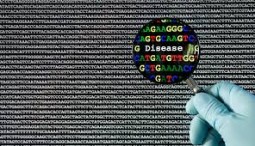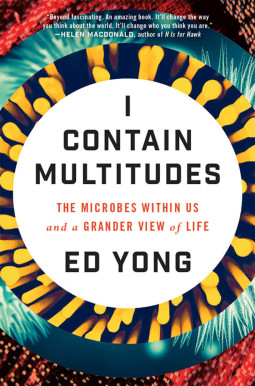 This week’s pledge- drive show features a teaser introduction to Ed Yong’s new book I Contain Multitudes: The Microbes Within Us and a Grander View of Life. We play segments from the interview that host Susan Moran recently had with Yong, a science writer for The Atlantic. There still may be a copy left, so call now to have your own, with a pledge of at least $60 to KGNU. Call 303.449.4885.
This week’s pledge- drive show features a teaser introduction to Ed Yong’s new book I Contain Multitudes: The Microbes Within Us and a Grander View of Life. We play segments from the interview that host Susan Moran recently had with Yong, a science writer for The Atlantic. There still may be a copy left, so call now to have your own, with a pledge of at least $60 to KGNU. Call 303.449.4885.
The book explores the role that invisible yet mighty microbes play in our lives, as well as the lives of so many species with whom they have co-evolved. Yong highlights the research of many scientists in this emerging field who are studying how our gut microbiome influences our brain chemistry, and our overall mental and physical health. The book deepens our understanding of the ecosystems within our bodies as well as the ecosystems in the natural world.
Next Tuesday, Nov. 4, we will broadcast the complete interview with Ed Yong.
Hosts: Susan Moran, Beth Bennett, Kendra Kruger
Producer: Beth Bennett
Engineer: Shelley Schlender
Additional Contributions: Joel Parker
Executive Producer: Beth Bennett
Listen to the show:
Podcast: Play in new window | Download (Duration: 27:02 — 24.8MB)
Subscribe:
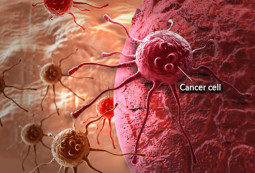

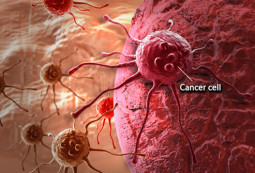


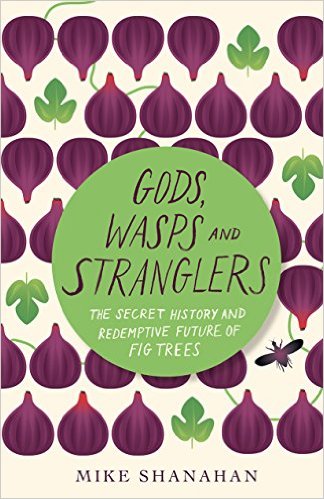
 Today’s feature has How on Earth’s Beth Bennett talking with Dr. Mike Shanahan, a biologist who has a degree in rainforest ecology. He has lived in a national park in Borneo, bred endangered penguins, and investigated illegal bear farms. His writing has appeared in
Today’s feature has How on Earth’s Beth Bennett talking with Dr. Mike Shanahan, a biologist who has a degree in rainforest ecology. He has lived in a national park in Borneo, bred endangered penguins, and investigated illegal bear farms. His writing has appeared in 
 The American Gut project is the largest crowd-sourced project ever: to date, over 80.000 participants have contributed fecal, skin, or oral samples. The ambitious goal is to characterize the microbiota of as many individuals as possible to identify the diverse species living in and on us. Beth interviews Dr Embrietta Hyde, Project Manager of the Gut project about results and progess.
The American Gut project is the largest crowd-sourced project ever: to date, over 80.000 participants have contributed fecal, skin, or oral samples. The ambitious goal is to characterize the microbiota of as many individuals as possible to identify the diverse species living in and on us. Beth interviews Dr Embrietta Hyde, Project Manager of the Gut project about results and progess.
 Beth interviews Drs Jane Bock (starts at 16:35) and David Norris (starts at 7:10), co-authors of
Beth interviews Drs Jane Bock (starts at 16:35) and David Norris (starts at 7:10), co-authors of 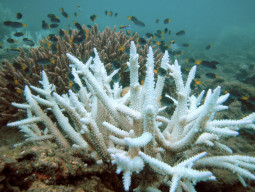
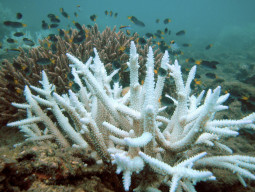 This week on How on Earth Beth interviews two NOAA scientists who study climate change. Joanie Kleypas is a marine ecologist who investigates how rising atmospheric carbon dioxide affects marine ecosystems. She is a self-described optimist who is committed to finding solutions to the “coral reef crisis.” Pieter Tans he has led the Carbon Cycle Greenhouse Gases group at NOAA since 1985. This group has maintained NOAA’s Global Greenhouse Gas Reference Network, producing the most widely used data of atmospheric CO2, CH4, and several other greenhouse gases and supporting measurements.
This week on How on Earth Beth interviews two NOAA scientists who study climate change. Joanie Kleypas is a marine ecologist who investigates how rising atmospheric carbon dioxide affects marine ecosystems. She is a self-described optimist who is committed to finding solutions to the “coral reef crisis.” Pieter Tans he has led the Carbon Cycle Greenhouse Gases group at NOAA since 1985. This group has maintained NOAA’s Global Greenhouse Gas Reference Network, producing the most widely used data of atmospheric CO2, CH4, and several other greenhouse gases and supporting measurements.
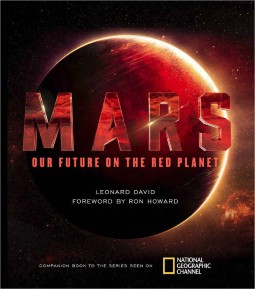

 This week’s pledge- drive show features a teaser introduction to Ed Yong’s new book
This week’s pledge- drive show features a teaser introduction to Ed Yong’s new book 
